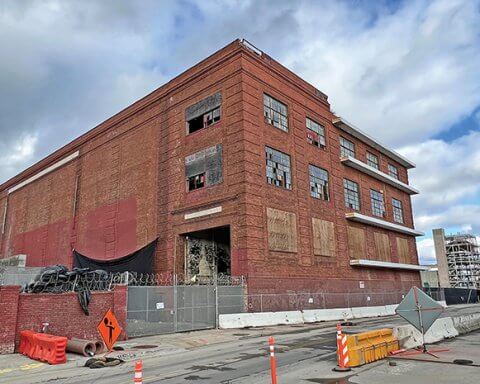Despite an economy marked by high growth and low unemployment, motor vehicle repossession rates have risen in many parts of the country, including California. According to California Department of Business Oversight data, there were 44,897 auto repossessions in the state in 2017. In 2016, that number was 39,948, with 39,690 repos in 2015 and 41,492 in 2014. In 2013 there were just 13,167 such seizures.
Outside of DBO’s annual reports information on statistical trends is hard to find. “Good data is not something readily available for vehicle repossessions, though there are propriety sources,” said John W. Van Alst, staff attorney at the National Consumer Law Center. “This lack of publicly available data makes the issues around repos worse, because policy makers have a hard time creating good policy without good data.”
Based on Fitch Ratings research, Business Insider reported this past April that, nationwide, the subprime auto loan delinquency rate is worse than during the financial crisis a decade ago. The vehicles attached to these loans are repossessed after they become negligent for just three months.
“Generally, people can’t afford to lose their car,” commented Van Alst. They will sometimes even prioritize it above their home, explaining that they can live in their car but can’t drive their home to work. This meant that auto debt performed well in the last recession, which drew new money into auto lending, with longer terms even for used cars, more negative equity, and other dangerous characteristics. These subprime auto financing with more built in abuses may not perform as well as in the past. This probably won’t impact the larger economy to the extent of the housing crisis because auto loans are smaller dollar amounts compared to home mortgages. However, lots more people have an auto loan than a home loan and that can make the impact of bad practices in this area more widespread.”
The rise in repossession rates has coincided with expanded technology that’s made seizing vehicles easier. The digital data industry and advanced camera technology has streamlined abilities to locate vehicles associated with delinquent auto loans and tow them away. In some cases, cars are being equipped with devices that’ll disable the starting mechanism if loan payments are late.
Rosemary Shahan, founder of the Sacramento-based nonprofit, Consumers for Auto Reliability and Safety, warned that in addition to repos from loan delinquencies, more people could begin losing their vehicles due to Assembly Bill 516.
“The new law will require consumers to display temporary tags with prominent, easily scanned, expiration dates set to expire 90 days after purchase,” Shahan stated. “After that date, if the consumers haven’t installed their permanent plates — even if they have not received them, through no fault of their own — they are subject to being pulled over, ticketed, and having their vehicles impounded. Enforcement of the existing 90-day deadline for displaying permanent plates will step up significantly, when AB 516 takes full effect, and law enforcement and other entities can easily scan the temp tags and identify vehicles with temp tags that have expired.”
Authored by Assembly member Kevin Mullin and supported by toll companies, car dealers, and law enforcement organizations, AB 516 takes effect in January. Consumers for Auto Reliability and Safety, Lawyers’ Committee for Civil Rights of the San Francisco Bay Area, among other groups, opposed the legislation.
Shahan believes that the legislation leaves the door open for thousands of innocent people to be pulled over, ticketed or having their vehicles impounded. Undocumented immigrants identified in this manner could end up facing deportation, she said. If those at risk try to alter temporary tag data to avoid potentially losing their car while they await permanent plates, they can be changed with a felony crime and face imprisonment.
According to Shahan, delays in replacing temporary plates can be caused when car dealers go out of business without completing the registration process, permanent plates being sent to the wrong address, and dealers submitting an incorrect VIN or who sell vehicles with unpaid liens or out-of-state registrations.
Business Insider described the fallout from the subprime auto loans as “carmageddon” and “a slow-motion wreck,” with several such lenders recently filing for bankruptcy as the sector has experienced losses. The financial consequences could lead to a tightening of lending practices and fewer new car sales.
“The auto repossession industry is like the Wild West and no one is keeping track of any of this. Both consumers and repo agents have been killed,” said Van Alst. “Children have been towed away in repossessions. Sometimes the wrong car is repossessed. The current system is dangerous for consumers, repo agents, and the general public. Any repo is devastating to people who’re losing their car because they can’t get to work, take their child to school or go to medical appointments. The impact of a car repo can follow them for years.”



